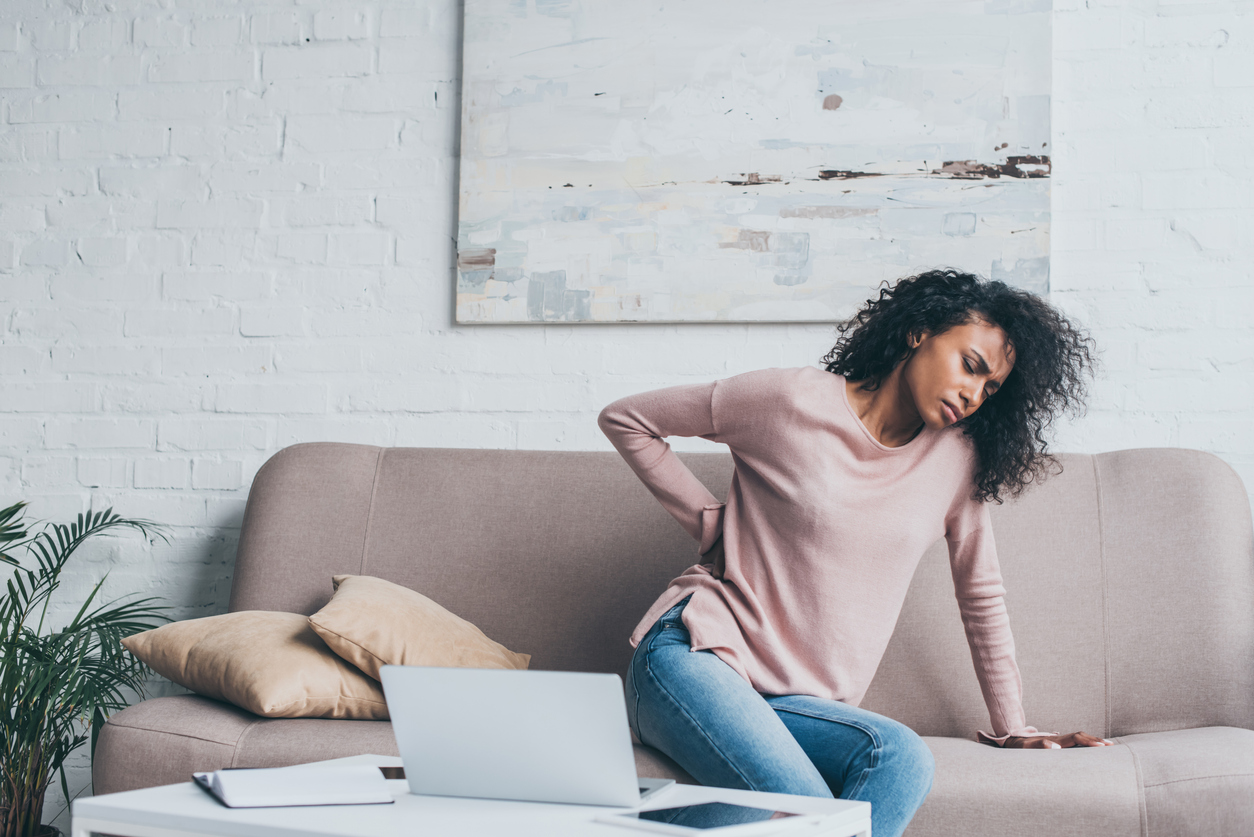If you are plagued by back pain, either chronically or during acute episodes, it is important to have your problem correctly diagnosed and treated. It is also important to learn how to strengthen your core muscles and to learn which activities and habits may be undermining your efforts to heal.
Consulting with an astute physiatrist (a physician who specializes in pain management and restoration of function) is an essential first step to understanding exactly what you’re dealing with. At Long Island Spine Rehabilitation Medicine, we are eager to help with diagnosis and are experts at nonsurgical treatment. In addition to our gentle, holistic intervention, some simple changes in your daily routine can make a tremendous difference in improving your back health.
How to Keep Back Pain at Bay
Once you have had your back problem properly diagnosed and have begun treatment, there are several ways you can help your healing process. These involve becoming aware of things you are doing that are unintentionally making your back pain worse.
Positions that Hurt Your Back in the Long Run:
Slouching
Though it may be tempting to relax for long periods in a slouched position (especially during long days of the pandemic when you are at home with little to do), this is very detrimental to your back. Many back patients, feeling self-indulgent, do themselves harm by reading or watching TV in slouched positions for long periods of time.
You can become so accustomed to slouching that you hunch over the steering wheel while driving, or curve your body while playing video games on the sofa. Assuming that you’re pampering your back because you’re not exerting yourself is a big mistake. One doctor compared the damage caused by poor posture to the damage caused by lifting a heavy weight.
Sitting Incorrectly
To correct this problem, you should sit up straight (your mother was right), always maintaining the natural curve of your back. Using a lumbar support, even just a rolled-up towel, will remind you to avoid slouching. A supportive chair is better than a deeply cushioned one, and sitting at a natural height is better than sitting low to the ground. Also, you should try to take breaks from sitting after no more than 30 minutes.
Sleeping on a Bad Mattress
Restorative though sleep is, sleeping on an old, worn, or poor-quality mattress can worsen back pain. Mattresses that are no longer firm enough to be supportive, sag or have low spots, may do damage. Besides which, some new technological advances, such as beds with adjustable frames, can be extremely helpful in coping with back pain. A thick, supportive, comfortable mattress is a good investment in your health.
How to Accomplish Tasks Without Hurting Your Back
Treatment for back pain at our offices is varied and customized to your individual needs. While during an episode of acute back pain rest may be required, it is necessary to understand how to bend, lift, and turn your body without exacerbating your back pain. Whether you are doing household chores, gardening, playing a sport, or simply reaching for a plate or tool on a high shelf, the way you move can make a major difference in whether you hurt back or protect it.
You should avoid:
- Heavy lifting or lifting for too long (e.g. carrying a toddler or a backpack for a long time)
- Lifting with your back instead of your legs
- Bending without bending your knees or bending for a long time (e.g while weeding)
- Lifting things that are at a distance from your body
- Twisting your body to lift or reach for things
Getting yourself into better habits, for example, walking closer to retrieve something rather than reaching for it, can make a dramatic difference in alleviating (or at least not worsening) your back pain.
Positive Lifestyle Changes that Will Help Your Back to Heal
Clearly, it is easier to make some changes than others, but the more positive changes you make to your daily routine, the happier you and your back are likely to be. Whether you have a congenital predisposition to back problems, have had a recent injury, are recovering from surgery, or are simply suffering the effects of aging, following these guidelines will help you be more comfortable:
- Wear supportive shoes; avoid flip flops and high heels; wear shoes with cushioned soles
- Put your pants on when seated so that you raise your legs rather than bend your spine
- Try to be slower and more deliberate in your movements, especially as you age
- Engage in healthy activity on a regular basis
- Stop smoking to increase your body’s ability to heal
- Lose weight if you are overweight or obese; even 5 percent of your weight can make a noticeable difference
- Eat a healthier diet to decrease inflammation — fewer carbohydrates and more green leafy vegetables, nuts, fatty fish, and berries
Help Your Body to Heal and Seek Professional Advice When Necessary
Most patients don’t have to live with chronic back pain. At Long Island Spine Rehabilitation Medicine, we are dedicated not only to accurate diagnosis and specialized treatment, but to giving you a healthier, more joyful life. Now is the time to commit yourself to that same goal.
